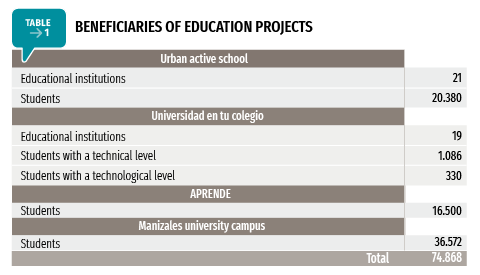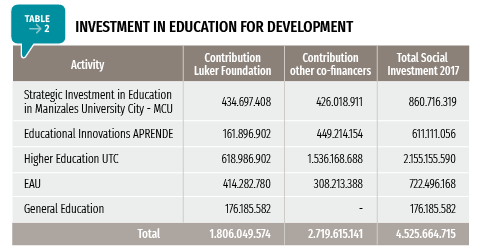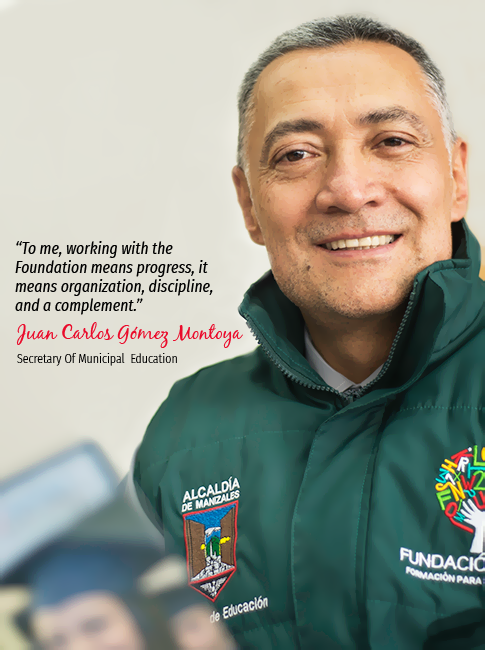

The Urban Active School (EAU) strengthens the student’s ability to “learn how to learn” by means of an active, participative, and collaborative process, also developing skills such as leadership, communication, creativity, and autonomy, among others.
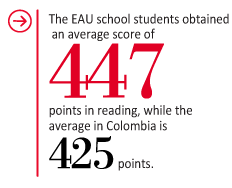
Highlights
-
20,380 students benefited
-
21 official educational institutions take part in the model (57% of urban public institutions in the city)
-
2 new educational institutions were incorporated into the model in 2017: Liceo León de Greiff and Liceo Mixto Sinaí.
-
21 educational institutions received the modules of the new Business Management version and visits to support the implementation.
-
The EAU school students obtained an average score of 447 points in reading, while the average in Colombia is 425. With the EAU model, Manizales is one of the 12 cities in the world included in the pilot evaluation of socio-emotional competencies led by the Organization for the Economic Cooperation and Development - OCDE.
-
Design and validation of instruments for the evaluation of socio-emotional competencies for the 5th and 11th grades.

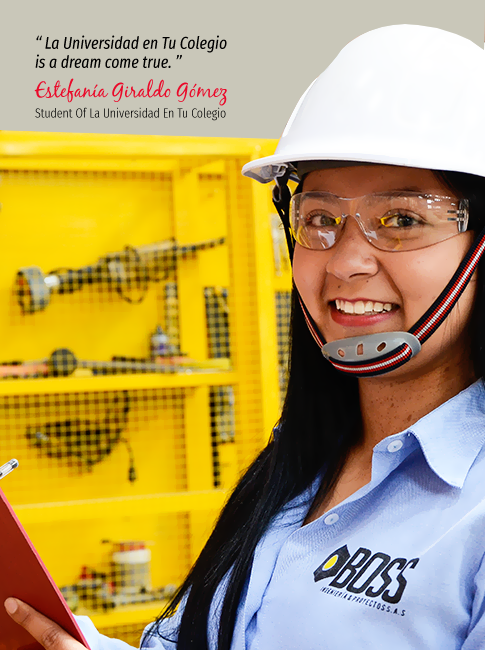

It enables access to technical education programs, in conjunction with the media and technology, to students of public educational institutions taking part in the Urban Active School model.
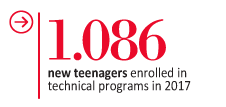
The project is developed at educational institutions, simultaneously with grades 10 and 11, outside the regular school day. Students who obtain a Professional Technician degree can take two more semesters to obtain a Technologist degree.
Highlights
-
19 educational institutions participate in the project
-
330 teenagers enrolled in the technological level in 2017
-
617 teenagers graduated in a technical level
-
58 teenagers graduated in a technological level
-
8 professional technician programs were implemented
-
3 work technician programs were implemented
-
6 technological programs were implemented

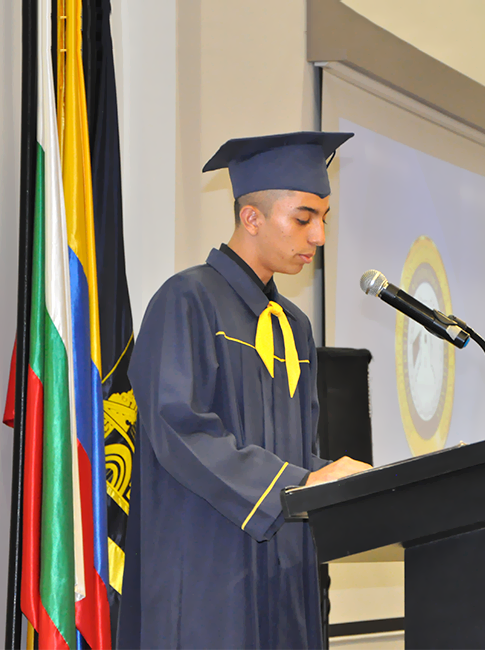
-
With the above, the coverage has increased to 35% of 10th graders from official schools enrolled in high quality technical programs in the city.
-
15 institutions of the public, academic, and private sectors make up the alliance (Secretariat of Education, Corona Foundation, Confa, EPM Chec Group, Sura Foundation, ANDI, Fenalco, Universidad de Caldas, Universidad de Manizales, Universidad Autónoma, Universidad Católica, Unitécnica, Batuta, Colegiatura del Café, and Luker Foundation)
Innovations
-
Mobility Strategy: through which students can go to middle school at a determined educational institution related to the EAU.
-
The El Comercio Educa campaign led by Fenalco and the Universidad de Manizales in order for students in the fourth semester of the professional technical level to gain experience through hands-on practice programs at business establishments in the city.
-
ANDI promoted the opening of hands-on practice spaces of technological programs developed by the Universidad Autónoma: Industrial Automation, Industrial Mechanics, and Information Systems Analysis and Programming.

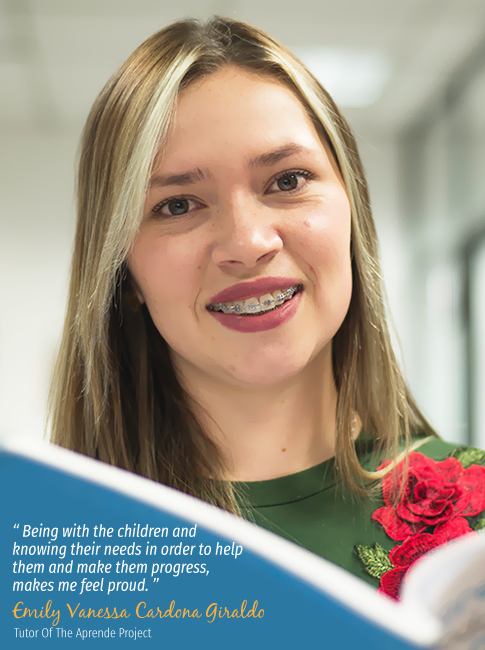

The Aprende project designs, implements, and evaluates educational innovations aimed at strengthening the basic competencies of students at official educational institutions of Manizales. In addition, it provides knowledge to the region on the effectiveness of academic reinforcement programs for reading and math teachers.
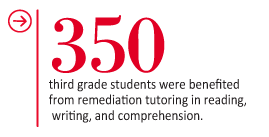
Highlights
-
More than 16,000 children were benefited from the application of EGRA – EGMA* diagnostic tests.
-
350 third grade students were benefited from remediation tutoring in reading, writing, and comprehension.
-
A team of 17 persons provide guidance in remediation tutoring.
-
325 students were benefited from the implementation of the pilot materials for reading teaching-learning in first grade at two official educational institutions in the city.

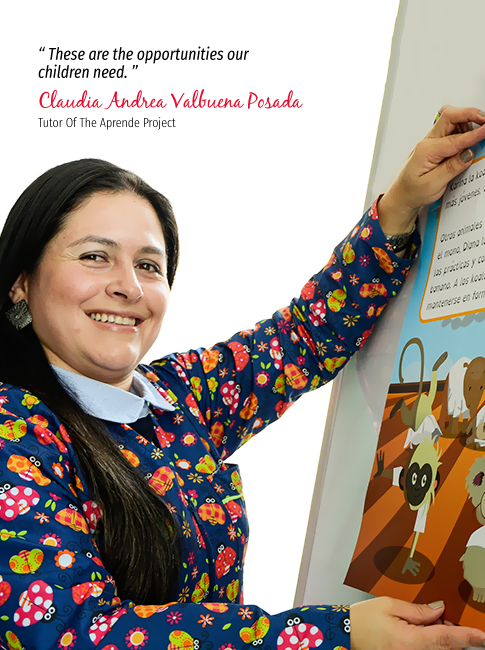
-
10 schools share significant experiences in matters pertaining to academic management and community management.
-
Five educational innovation pilot programs have been implemented at official schools in order to determine the best strategies aimed at impacting the development of language and math competencies, in alliance with the Inter-American Development Bank and Harvard University.
Innovations
-
The project of Reinforcement of Basic Competencies in Reading, Writing, and Mathematics for the students of Manizales constitutes an educational innovation.
-
New materials were designed for the teaching-learning of reading and writing.
*NOTE: The interventions of Aprende are evaluated through EGRA (Early Grade Reading Assessment) and EGMA (Early Grade Math Assessment) diagnostic tests. Baseline and final tests are given for each intervention.

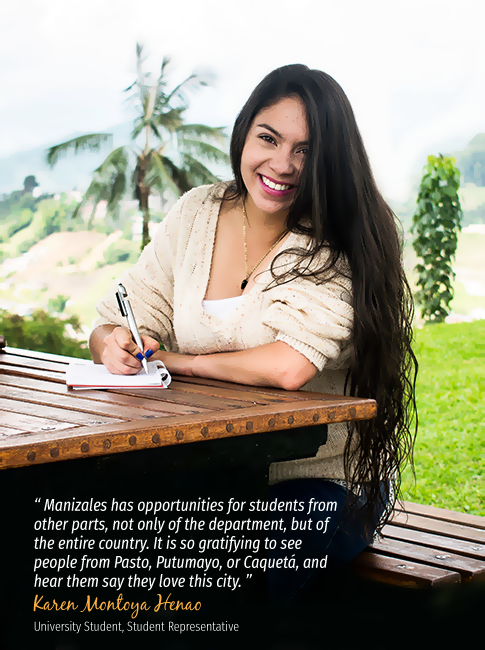

This initiative generates systematic and deliberate efforts to contribute to the development of Manizales as a world-class university campus based on a public, private, and academic alliance.
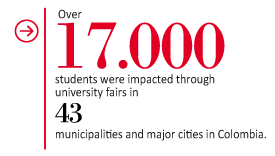
Highlights
-
Over 17,000 students were impacted through university fairs in 43 municipalities and major cities in Colombia.
-
An increase of more than 60% of followers on social networks with an important interaction (most of them are university students).
-
Launching of Manizales University Campus Zone card and start-up of pilot test. The most benefited sector was the food sector, generating sales of over $10,000,000 in two months.
-
Over 10,000 students are using the card.
-
Strengthening of a cultural newsletter distributed in the city, with 5,000 copies distributed every month in strategic places of the city.




